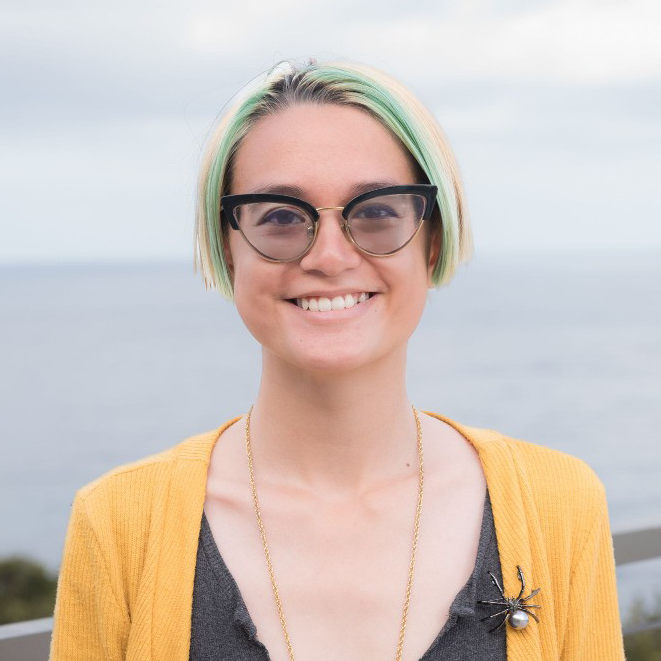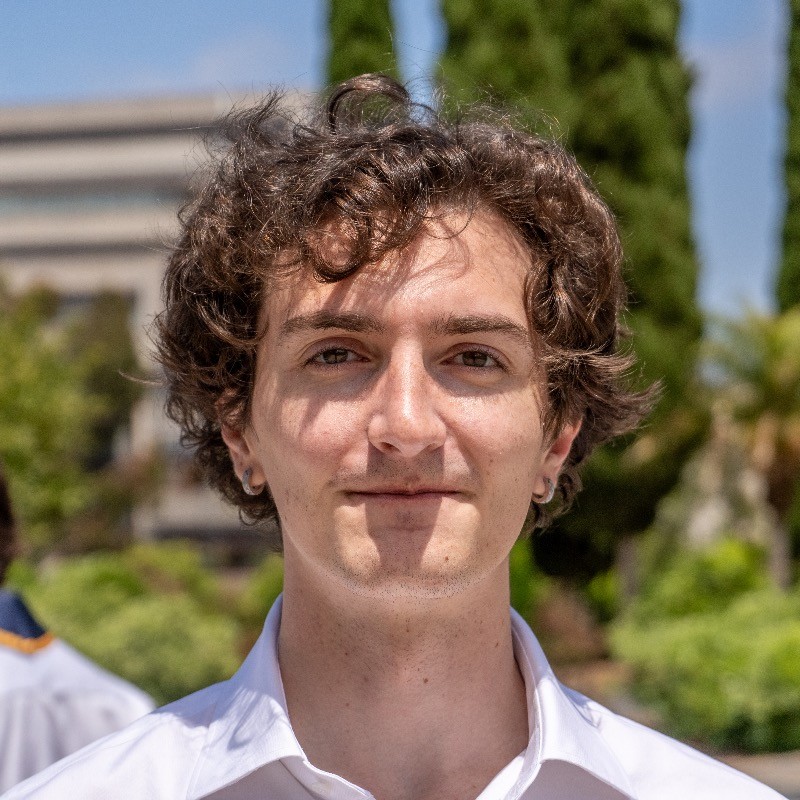

Dr. Andrew E. Allen is Joint Professor at Scripps Institution of Oceanography, UC San Diego and the J. Craig Venter Institute. Following his PhD from the University of Georgia and postdoctoral work at Princeton and École Normale Supérieure, he joined JCVI in 2007 and Scripps in 2013. His laboratory studies marine micro-eukaryotic phytoplankton, which perform half of global photosynthesis and form the foundation of ocean ecosystems. The team combines physiological, bioinformatic, and genomic approaches to understand how these organisms adapt to stress, regulate nutrient cycles, and interact with bacteria and viruses. This research aims to illuminate the regulatory networks controlling nutrient flux in marine ecosystems. Dr. Allen has led numerous research expeditions to the Southern Ocean where he and his team have documented key molecular mechanisms and physiological adaptations that enable diatoms and other phytoplankton groups to thrive in this unique ecosystem. They have additionally discovered and reported on genetic, physiological, and biochemical mechanisms that control the response of Southern Ocean phytoplankton to micronutrients and shifting ocean temperature and pH. Through the Genomics at Sea Program, his group aims to investigate the genome scale properties that underlie the biodiversity and function of Southern Ocean microbial plankton.

Christian Johnson
Project Lead & Field Scientist (PhD Student)
Christian Johnson is a second-year marine biology Ph.D. student at the Scripps Institution of Oceanography (SIO), co-advised by Dr. Andrew Allen and Dr. Maria Vernet. He began developing the Genomics at Sea Program (GASP) with his advisors in the spring of 2023 and now serves as the foundation for his Ph.D. research.
At SIO, Christian conducts research at the J. Craig Venter Institute (JCVI) and serves as a visiting scientist aboard Viking expedition ships during the austral summer. His current research interests focus on the mechanisms and environmental factors that influence the diversity and metabolism of microbial plankton in the Southern Ocean. He is particularly interested in how nutrient inputs from penguin colonies around the Western Antarctic Peninsula affect phytoplankton community structure, using GASP to investigate these ecological interactions.
Christian’s introduction to polar research began through a fellowship with Dr. Allison Cusick and the FjordPhyto project, where he first explored polar ecosystems and developed a passion for Antarctic science.

Ariel Rabines
Project Manager (Postdoctoral Researcher)
Dr. Ariel Rabines is a postdoctoral scholar in the Integrative Oceanography Division at Scripps Institution of Oceanography. He holds a Ph.D. and M.S. in Marine Biology from the University of California San Diego and a B.S. in Molecular, Cell, and Developmental Biology from the University of California Santa Cruz.
His research focuses on microbial community dynamics, real-time environmental monitoring using nanopore sequencing, and ecological genomics. He has extensive experience in molecular methods, bioinformatics, and field-based oceanographic research. Dr. Rabines has collaborated on numerous publications exploring microbial interactions in coastal and open ocean systems and has contributed to projects aimed at improving algal cultivation for sustainable biofuel production. Beyond research, he is passionate about outreach and mentorship, engaging with students and the public to promote marine science.

Lisa Zeigler
Senior Investigator & Field Scientist
Dr. Lisa Zeigler is a microbial and viral ecologist using laboratory, field-based, and computational approaches to investigate food web dynamics and virus-host interactions. She received her Ph.D. from University of California, San Diego, Scripps Institution of Oceanography (UCSD-SIO) in 2011.
Her research centers on microbial (algal and bacterial) and viral communities within highly productive marine ecosystems. These ecosystems range from surface waters driven by photosynthesis to deep-sea hydrothermal regions fueled by chemosynthesis. Her laboratory combines large environmental datasets with laboratory-based studies of emerging model systems from these regions to measure biodiversity, examine interactions within microbial food webs, and explore how changes in physical-chemical environments influence ocean biota. With expertise in global genomic analyses of marine microbes and viruses, as well as detailed investigations at the single-cell and single-virus level, her work often pushes technological boundaries. This requires the development of innovative methods for isolating single cells and viruses in both wild and laboratory settings. Recently, she and her team have expanded their fieldwork to include real-time sequencing and analysis using Oxford Nanopore technology, which the GASP team has successfully adapted for the Antarctica-based program.

Allison Cusick
Project and Field Scientist (Post-doctoral Researcher)
Dr. Allison Cusick completed her degree in the Biological Oceanography PhD program at Scripps Institution of Oceanography under the supervision of Dr. Vernet analyzing samples collected by the citizen science project FjordPhyto.
Since 2017 (except during the pandemic 2020-2021) she has traveled to the Antarctic Peninsula on various tour ships as Lecturer & Field Scientist for FjordPhyto, spending more than 300 days at sea. Her work in FjordPhyto has been published in Oceanography Magazine, and in ECO Magazine; she was also featured as a Polar Hero and in Condé Nast Traveler. Allison had a brush with fame starring in Jeff Goldblum’s show ‘The World According to Jeff Goldblum’ sharing the science of tiny marine organisms and the world of phytoplankton in the “Tiny Things” episode streaming on Disney+ Plus. For her work progressing the efforts of FjordPhyto, Allison was recognized by the Inaugural UCSD Chancellors Student Innovation Award.
Allison is an advocate for connecting people to the wonders of science through her social media platform Woman Scientist to help people pursue careers in adventurous field science. To learn more about Allison’s career visit her LinkedIn.

Martina Mascioni
Project and Field Scientist (Post-doctoral Researcher)
Dr. Martina Mascioni completed her degree in the Phycology PhD program at the National University of La Plata, Argentina, under the supervision of Dr. Gaston Almandoz and Dr. Maria Vernet analyzing the first samples collected by the citizen science project FjordPhyto in 2016-2017. Her work focused on the ecology and diversity of the phytoplankton community from the coastal areas of the western Antarctic Peninsula. Since then, she has focused on expanding the biodiversity in the western Antarctic Peninsula, with an emphasis on new cryptophyte and dinoflagellate species. With her expertise in Antarctic phytoplankton ecology and diatom taxonomy Dr. Mascioni is a teaching assistant in a course in "Systematic Botany I" (Botánica Sistemática I) a subject taken by third-year biology students learning about protist and fungi biology. As a native Spanish speaking scientist, she has been instrumental in providing bi-lingual information in the FjordPhyto project. To learn more about Martina’s Career visit her profile on ResearchGate, or see FjordPhyto en Español.

Zoltán Füssy
Computational Biologist (Staff Research Associate)
Dr. Zoltán Füssy is bio informaticist in the Allen Lab. He is interested in how genomic adaptations in microbial plankton enable adaptation to specific environments. With the use of comparative genomics, he examines biochemical adaptations and biotic interactions, in the context of their evolutionary history. He has recently conducted an extensive comparative genomics study of the dominant polar phytoplankton lineage Phaeocystis. His evolutionary reconstruction supports the idea that Arctic and Antarctic species of Phaeocystis share a more recent common ancestor to one another than either does to species found in subtropical or tropical waters. Dr. Füssy supports the GASP program through assembly and maintenance of key databases that are needed for analyses of GASP data. He additionally assists with and performs various computes that support GASP data analyses.

Freya Hammar
Website Developer & Graphic Designer (PhD Student)
Freya Hammar is a Ph.D. student in Dr. Andrew Allen's lab at the Scripps Institution of Oceanography (SIO). With a background in molecular biology, she specializes in digital communication and accessibility, ensuring that complex scientific projects are presented in a clear, engaging manner. She began working part-time as a scientific illustrator in 2022, and took over development of the GASP website in 2024.

Nikolas Yanek-Chrones
Data Specialist
Nikolas is a small business owner. He graduated from UC San Diego in 2024 with a B.S. in Cognitive Science, specializing in machine learning and neural computation. In 2023 He joined the Fjord Phyto Project as a volunteer, and began his journey as a bioinformatician under the mentorship of Dr. Allison Cusick and Christian Johnson.
While volunteering for Fjord Phyto, he identified areas of friction in the research process, particularly regarding colocation of data points across modality, time, and space. His work with GASP has been focused on developing a desktop application (Poleshift) that preemptively addresses those areas of concern in addition to providing immediate, actionable analysis to researchers in the field. Through close collaboration with scientists in the field, particularly Christian Johnson and Dr. Emma George, a beta version has been completed for use in live contexts.
PAST MEMBERS
Emma George
Field Scientist
Dr. Emma George is a Postdoctoral Fellow at the Scripps Institution of Oceanography working on phytoplankton and microbial food webs. She focuses on bacterial interactions with phytoplankton, mainly diatoms. Her career as an environmental microbiologist has taken her all over the world to study various marine environments including the open ocean, coral reefs and now, polar ecosystems.
Bryce Ellman
Field Scientist
Bryce Ellman is a marine biologist with extensive experience in oceanographic fieldwork, genomic analysis, and environmental monitoring. She received her B.S. in Marine Biology from UC San Diego and the Scripps Institution of Oceanography, where she now works as staff researcher, leading innovative initiatives aboard NOAA and UNOLS vessels. Her expertise spans CTD operations, plankton and microbial sampling, metabarcoding library preparation, and real-time imaging flow cytometry. Passionate about interdisciplinary research collaboration, she strives to advance our understanding of marine ecosystems, while fostering inclusivity and diversity in science. Outside of work, Bryce actively engages with the community as a naturalist volunteer at the San Diego Natural History Museum and loves to spend her free time at the beach or practicing aerial silks.

